Does Keurig Pose a Risk of Cancer?
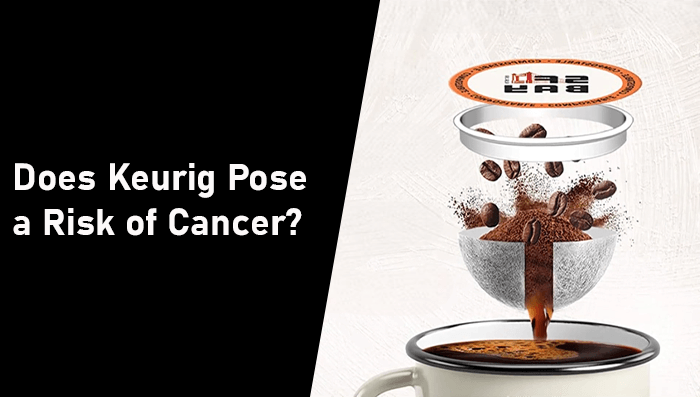
Cancer has become the most common cause of death around the globe, with several risk factors. Though cancer is partially curable, it drastically affects the quality of life. Therefore, we must improve our living and reduce the risks that lead to certain carcinomas. Similar to several other things, coffee and K-cups also contain certain chemicals that can cause cancer.
Though coffee has several health benefits, over usage and specific brewing methods can lead to cancer. However, the chances are significantly low. So you are not at risk. Besides, k-cups are also considered non-carcinogenic as they are BPA Free. It may contain certain chemicals that can cause cancer.
Since coffee and cancer have an uncertain relationship, you cannot just blame your k-cup for being the reason behind this horrible disease. Thus, its must that we uncover all the facts. And that’s the reason I am here with all k-cup related-cancer-causing risk factors to weigh the risk and benefit ratio of k-cups.
Related Read: Are K-Cups Bad for You? [Mystery Solved]
Are Keurig K-Cups Potentially Toxic?
Keurig K-Cups have been a topic of concern regarding their potential toxicity. While some studies suggest that certain types of K-Cups could contain harmful chemicals, the evidence is not conclusive.
One of the primary concerns is that the K-Cup plastic may contain a substance known as bisphenol A (BPA or BSA), which is dangerous to human health. However, Keurig has stated that their K-Cups do not contain BPA, and they have switched to a different type of plastic that experts consider safer.
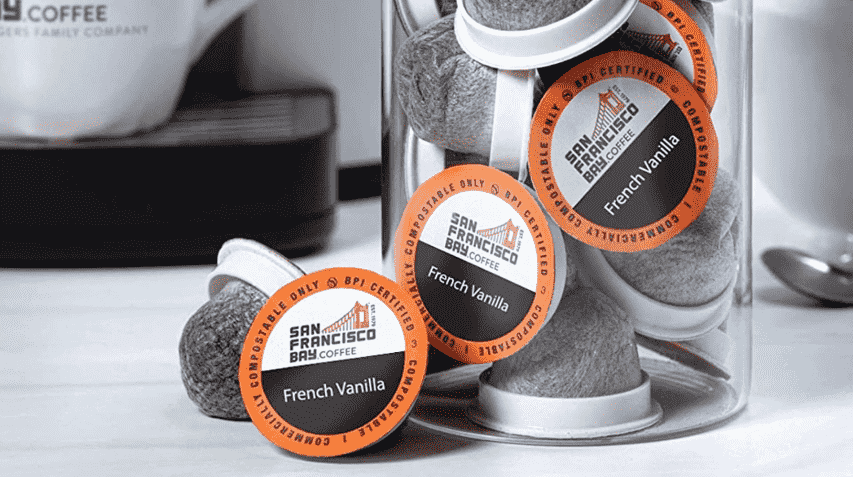
Another concern is that the aluminum foil that seals the K-Cups could release harmful chemicals when heated. However, studies have shown the number of aluminum leaches into the coffee is minimal. Thus, we should not consider it to pose a significant health risk.
Overall, while there is some concern about the potential toxicity of K-Cups, the evidence suggests that they are generally safe to use. However, it is essential to note that all plastics can be cancerous if exposed to heat, UV, or sunlight. And the Keurig manufacturer has not disclosed the ingredients used in K-cup manufacturing. So, there is still the possibility of risk.
Are k-cup BPA And Carcinogen Free?
Unfortunately, the answer is more complex. To be straightforward, Keurig marketed their k-cup as BPA-free. Besides, they are also FDA proven to be free from cancer-causing BPA and have minimal aluminum-derived toxins. Hence, it’s safe from cancer risks.
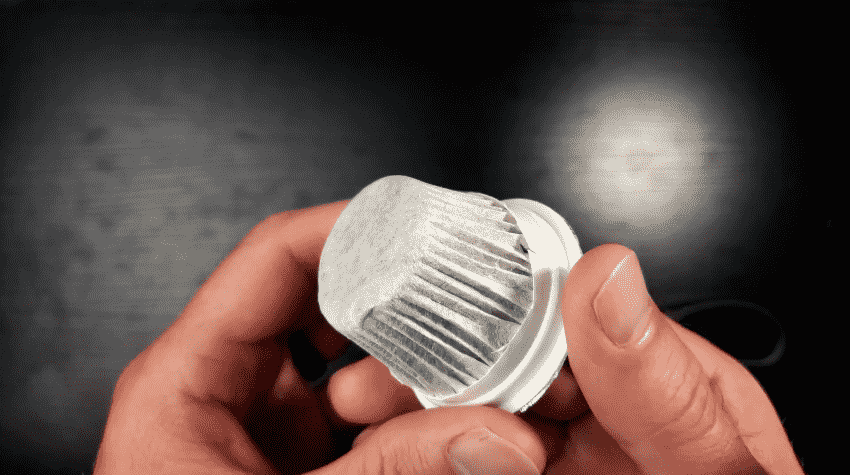
However, they still contain a mix of different plastics, which have been found to have estrogenic activity (EA) that can cause several health risks. When exposed to high heat and acidic contents, such as coffee grounds, K-cups have a 95% chance of leaching detectable EA chemicals, including those marked BPA-free. Hence, we come down to a list of possible carcinogens in K-cup.
Xenoestrogens in plastic:
K-cups can contain carcinogenic xenoestrogens, which are foreign estrogens found in plastic, and can increase cancer risk.
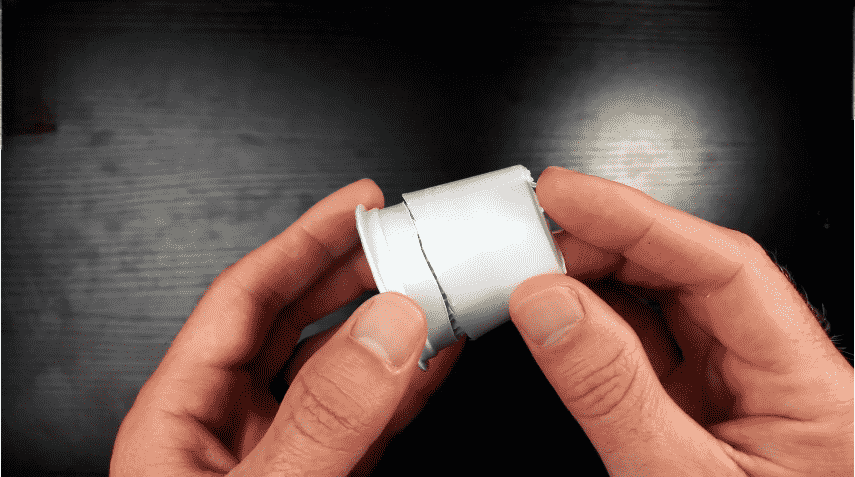
Aluminum:
According to research, the liquid is more prone to absorb chemicals leaching from aluminum upon heating in an acidic environment. Since coffee naturally contains acids, harmful chemicals can leach out from the aluminum top of the k-cup. Though the FDA has proven that the amount is harmlessly small, regular usage can increase cancer risks.
In addition to concerns about the plastics in K-cups, there are also potential carcinogens found in the coffee itself, which can be amplified by K-cup use. Here are some of the possible carcinogens found in coffee and their potential health risks:
Ochratoxin A:
Mycotoxin “Ochratoxin A” has been linked to kidney failure, cancer, brain damage, and immune system problems. According to 60 coffee sample studies, 33% of the coffee has Ochratoxin.
Aflatoxin B1:
This mycotoxin is a known carcinogen that harms the brain and kidneys.
Acrylamide:
Acrylamide is formed when coffee beans are roasted and is found in all coffee beans. It is a substance that might be dangerous and has been connected to cancer and other health problems. While we cannot avoid it, it’s good to know that ready-to-drink and lightly roasted coffee has higher levels.
Pesticides, Insecticides, Herbicides:
Coffee crops are often treated with a variety of chemicals, and it’s estimated that around 40 different pesticides and chemicals are used on coffee beans worldwide. These chemicals can have a range of health risks, including cancer.
Related Read: Is Keurig Coffee Instant Coffee? [K-Cups Making Process Revealed]
Are Other Coffee Pods Carcinogenic?
Wake up and smell the coffee, or is it carcinogenic? The truth is, it’s hard to say whether other coffee pods pose a cancer risk because the materials and composition can vary so much from brand to brand.
While some pods may be made from eco-friendly materials like paper or plant-based products, others are still clinging to the potentially harmful plastic construction. So, it’s essential to do your homework and research the specific brand and type of coffee pod. Well, I have done that for you. Let’s see if coffee pods from famous brands could be cancer-causing culprits.
Nespresso:
Nespresso capsules do not contain BPA, and the company states that their capsules are made of food-grade aluminum.
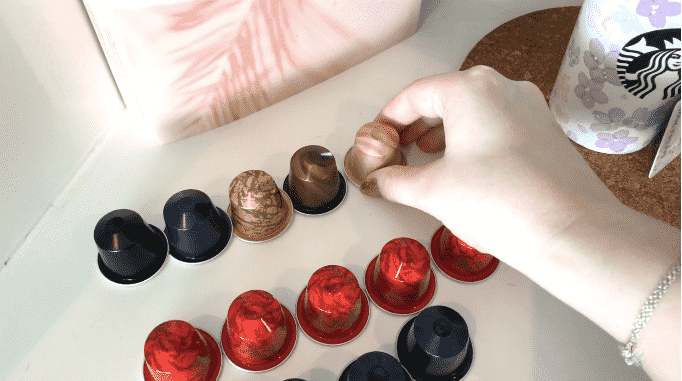
They further claim that aluminum provides an effective barrier against oxygen, light, and humidity. However, aluminum can release cancer-causing toxins if exposed to excessive heat.
Starbucks Verismo:
Starbucks manufactures its Verismo pods using BPA-free plastic. As we’ve discussed, it may contain chemicals that can negatively affect our health.
However, their pods are made of polypropylene, considered a safer plastic material than other types.
Lavazza And Illy:
Both brands claim that their coffee pods and capsules are made of BPA-free plastic.
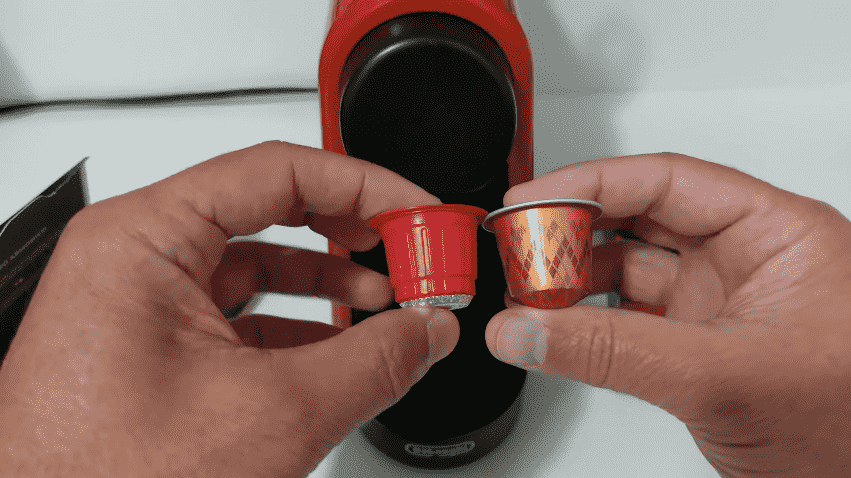
Hence, as discussed above, they also pose a low cancer risk.
Related Read: How Many Times Can You Use A Keurig Cup? Let’s Solve This Mystery.
Infertility Causing Chemicals In K-cup:
It’s understandable to be concerned about the impact of K-cups on fertility. There is no scientific evidence of the k-cup affecting fertility. However, some studies suggest that the chemicals found in K-cups, including BPA substitutes such as BPF, may negatively affect fertility. Here are some facts to consider:
- BPA and BPF are known endocrine disruptors, meaning they can mimic hormones in the body and interfere with the endocrine system. It can be hazardous to reproductive health and fertility.
- According to research in the journal Fertility and Sterility, women with greater urine BPA concentrations had a lower likelihood of getting pregnant. While this study did not specifically look at K-cups, it suggests that exposure to plastic chemicals may impact fertility.
- Another study published in Environmental Health Perspectives found that exposure to BPA and its substitutes, including BPF, was associated with reduced sperm concentration and motility in men. Since k-cups are plastic, they will have these chemicals.
Are There Healthier Alternatives to K-Cups for Home brewing?
Given these potential health risks, it’s worth considering alternatives to K-cups and conventional coffee. You can reduce exposure to potential carcinogens and other harmful substances by making informed choices about your coffee habits. So, here are a few healthier alternatives to K-Cups for home brewing for a healthy future.
- Step up your coffee game using freshly ground coffee beans with a reusable stainless steel K-cup. It’s eco-friendly and healthier, so you can enjoy your coffee without the guilt.
- Go organic! Opt for pesticide-free coffee to reduce your exposure to harmful substances. It’s a win-win for you and the environment.
- Embrace your inner barista and try different brewing methods like French press or pour-over. Not only do they make delicious coffee, but they’re also easy to use and clean.
- If you can’t resist the convenience of single-serve pods, look for compostable or biodegradable options. They may not be perfect, but they’re a step in the right direction.
FAQs:
Are Biodegradable K-cups Free From Carcinogens And Other toxins?
The good news is that biodegradable and sustainable K-cups can be crafted without carcinogens or other harmful toxins. Climate saviors made these K-cups with materials like plant-based plastics or natural fibers. Hence, they are environmentally friendly as well as safe for your health. Plus, you can responsibly dispose of them as they’ll break down naturally over time.
Are Stainless Steel K-cups Good For Health?
Stainless steel K-cups can be a good option for health-conscious coffee drinkers. They are a reusable alternative to disposable K-cups, reducing waste and minimizing exposure to plastic-derived harmful chemicals. Additionally, stainless steel is a non-reactive material. Hence, it won’t interact with your coffee or alter its taste. Thus, it’s a more reliable choice for those who want to enjoy their coffee free from chemicals or contaminants.
What Is the Healthiest Coffee in the World?
Many coffee enthusiasts consider shade-grown organic coffee is considered by to be the healthiest coffee in the world. It’s grown under the canopy of trees, providing a natural habitat for wildlife. Besides, It has higher levels of antioxidants and other beneficial compounds than coffee grown in direct sunlight.
Do Coffee Pods Cause cancer?
There is currently no conclusive scientific evidence to suggest that coffee pods cause cancer. However, some studies have raised concerns about coffee pods’ potential health and environmental impacts due to their plastic and aluminum materials. It’s important to use coffee pods in moderation and dispose of them properly to minimize potential risks.
Does Keurig have a prop 65 warning?
Yes! Due to the presence of chemicals known to the state to be harmful to the reproductive system and cause cancer, some Keurig coffee machines and accessories sold in California bear a Proposition 65 warning notice. Although the amounts of the pollutants are under federal safety requirements, California law requires a warning label. This warning does not, however, imply that Keurig products are dangerous or seriously endanger health.
Is it OK to use tap water for Keurig?
Yes, it’s okay to use tap water in a Keurig, but using filtered or bottled water can improve the taste of your coffee and prevent mineral buildup.
Why can’t you put milk in a Keurig?
Putting milk in a Keurig is not recommended because it can damage the machine and create a safety hazard. It’s best to heat the milk separately and then add it to your coffee or other hot beverages made with a Keurig.
